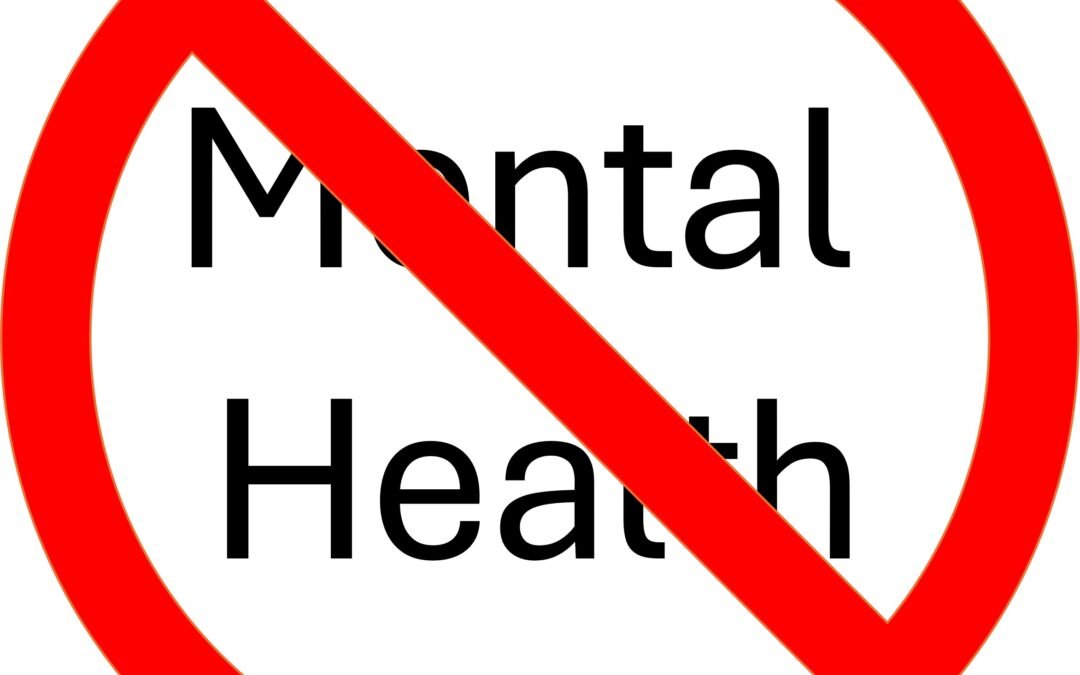Why People Struggle to Prioritize Mental Health: A Psychological Perspective
From a psychological lens, the reluctance to check, improve, maintain, and grow one’s mental health is a complex interplay of cognitive, emotional, and social factors. Below, we explore the key psychological barriers and define the terms to shed light on this critical issue.
Psychological Barriers to Mental Health Care
- Cognitive Distortions and Lack of Awareness
Cognitive distortions—inaccurate thought patterns—often obscure mental health needs. For example, minimization leads people to downplay their struggles, thinking, “It’s not that bad,” while all-or-nothing thinking convinces them they’re either “fine” or “broken.” Unlike physical ailments, mental health issues like anxiety or depression lack tangible markers, so self-awareness suffers. This ties to psychological mindedness, the ability to reflect on one’s thoughts and emotions, which many lack without practice or guidance.
- Stigma and Internalized Shame
Stigma—a societal mark of disgrace—surrounding mental health persists, rooted in cultural norms that equate emotional struggle with weakness. This fuels internalized stigma, where individuals absorb these beliefs, feeling shame or self-blame for experiencing distress. Psychologically, this activates avoidance coping, a defence mechanism where people sidestep painful emotions or help-seeking to protect their self-concept, delaying intervention until a crisis hits.
- Time Pressure and Executive Function Overload
Maintaining mental health requires executive functioning—higher-order cognitive skills like planning, prioritizing, and decision-making. In today’s fast-paced world, chronic stress overloads these capacities, leaving little mental bandwidth for self-care. This aligns with ego depletion, a state where willpower and self-control dwindle after prolonged demands, making it harder to initiate effortful tasks like therapy or mindfulness practice.
- Ambiguity and Approach-Avoidance Conflict
Starting mental health care triggers an approach-avoidance conflict, a psychological tug-of-war where the desire for relief (approach) clashes with fear of discomfort or failure (avoidance). The process—finding a therapist, decoding psychotherapy options (e.g., cognitive-behavioural therapy, or CBT, a structured approach to reframe thoughts)—feels daunting. Limited access or cost amplifies this, as does low self-efficacy, the belief in one’s ability to succeed, leaving people paralyzed.
The Role of Technology and Social Comparison
Technology offers tools like teletherapy but also fuels social comparison theory, where individuals evaluate themselves against others. Social media’s polished images spark upward comparison, making people feel inferior, which erodes self-esteem—one’s sense of worth. This can spiral into rumination, repetitive negative thinking, draining energy needed for mental health growth. Quick-fix online advice often lacks the depth of evidence-based interventions, confusing users further.
Psychological Strategies to Move Forward
- Build Metacognition: Enhance metacognition—awareness of your thought processes—by pausing to notice feelings. Try a five-minute breathing exercise to calm the amygdala, the brain’s emotion center.
- Challenge Stigma: Reframe help-seeking as strength, countering cognitive biases. Start with a trusted friend or explore psychoeducation, learning about mental health to normalize it.
- Ease In: Use small steps to bypass executive overload. Journal one thought daily to boost emotional regulation, the ability to manage feelings.
- Seek Support: Consider CBT or mindfulness via apps or professionals. A therapeutic alliance—a trusting bond with a therapist—can lift barriers, building resilience.
Key Takeaway
Psychologically, neglecting mental health stems from distorted thinking, shame, resource strain, and conflicting motives. Mental health isn’t static; it’s a dynamic process of growth, shaped by the neuroplasticity of our brains—the ability to adapt and rewire. Small, intentional steps can shift these patterns, leveraging our capacity for change. You’re not alone, and starting this journey is a powerful act of courage.
Glossary of Terms
- Cognitive Distortions: Faulty thought patterns (e.g., minimization, all-or-nothing thinking) that skew perception.
- Psychological Mindedness: The capacity to reflect on and understand one’s mental states.
- Stigma: Social disapproval or judgment attached to a trait, like mental health struggles.
- Internalized Stigma: When individuals adopt negative societal beliefs about themselves.
- Avoidance Coping: A strategy to evade distressing emotions or actions.
- Executive Functioning: Brain processes for planning, focus, and self-control.
- Ego Depletion: Temporary reduction in self-control after mental exertion.
- Approach-Avoidance Conflict: Tension between pursuing a goal and avoiding its risks.
- Psychotherapy: Treatment (e.g., CBT) to address mental health via talk or techniques.
- Self-Efficacy: Confidence in one’s ability to achieve a goal.
- Social Comparison Theory: Evaluating oneself by comparing to others.
- Upward Comparison: Judging oneself against those perceived as “better.”
- Self-Esteem: One’s overall sense of personal value.
- Rumination: Persistent, unhelpful focus on negative thoughts.
- Metacognition: Awareness and control of one’s thinking processes.
- Amygdala: Brain region tied to emotion and stress responses.
- Psychoeducation: Education about mental health to empower understanding.
- Emotional Regulation: The process of managing and responding to emotions.
- CBT (Cognitive-Behavioural Therapy): A structured therapy to reframe thoughts and behaviours.
- Therapeutic Alliance: The collaborative, trusting relationship with a therapist.
- Neuroplasticity: The brain’s ability to adapt and form new connections.

